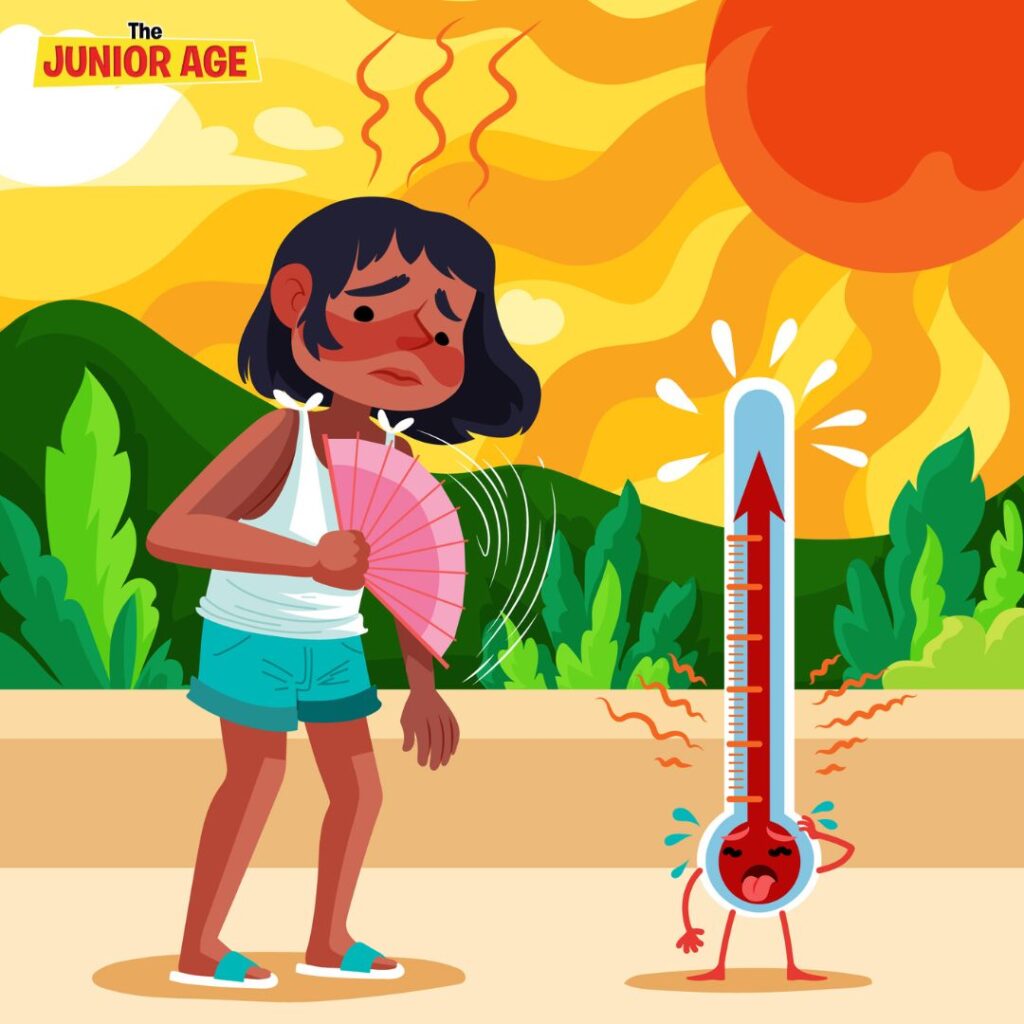Many parts of India are currently experiencing heat waves. Heatwaves usually occur in North-Western parts of India, typically between March and June, and in some rare cases even extend till July, The temperature in some places in India has already crossed 40° C. Indians are being warned to be careful. Heat waves are also becoming very common across the world. Some experts believe that climate change is responsible for this.

Also read about, Chandrayaan-3 Landing Point Is Now Officially “Shiv Shakti”
What Is Heat Waves?
According to the World Meteorological Organization, an agency of the United Nations, a heat wave is a period of unusually not weather over a region persisting for at least two consecutive days during the hot period of the year”
The Indian Meteorological Department has laid down the following criteria for heat waves: 40° C in the plains, 37 ° C in the coastal regions, and 30° C in the mountains.
What Causes Heat Waves?
According to the Asian Development Bank, “A heat wave occurs when there is high pressure in the atmosphere that forces hot air downward and traps it near the ground. This high-pressure system acts like a lock that prevents the hot air from rising. Consequently, rain cannot form and the hot air gets hotter”.
Consequences Of Heat Waves
Heat waves not only affect humans and wildlife, but can adversely impact the environment, as well. The following are some of the consequences of the heat waves:
- Droughts
- Scarcity of water
- Heat stroke
- Power outages & blackouts
- Exhaustion & dehydration
- Increase in air pollution and dust
8 heat wave safety tips to keep children safe:
There are various ways to stay safe in a heat wave. The following can be done in order to stay safe:
- Stay Indoors Between 12-4 Pm.
- Stay Hydrated
- Eat High Water Content Food
- Look After You Pets
- Avoid Sugary & Fizzy Drinks
- Use An Umbrella While Going Out
- Wear Light & Cool Clothing
- Avoid Extreme Physical Activity In The Sun
Did You Know?
According to the World Health Organisation and Red Cross, a person on average should drink approximately 3-3.5 litres of liquids per day to stay hydrated.
Watch Full Video on, Interesting Facts About Blue Whale

